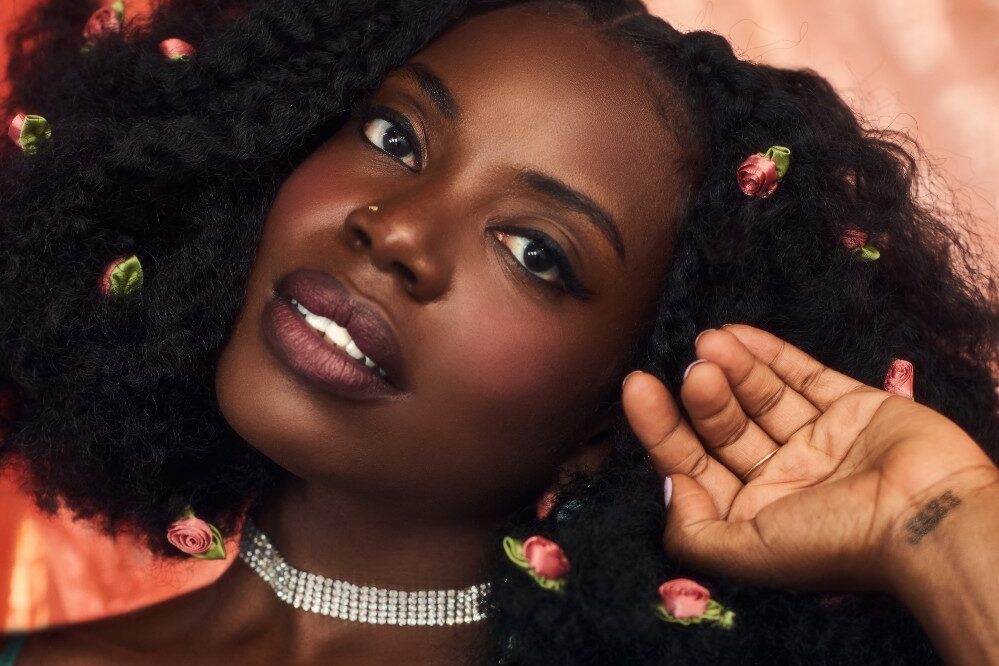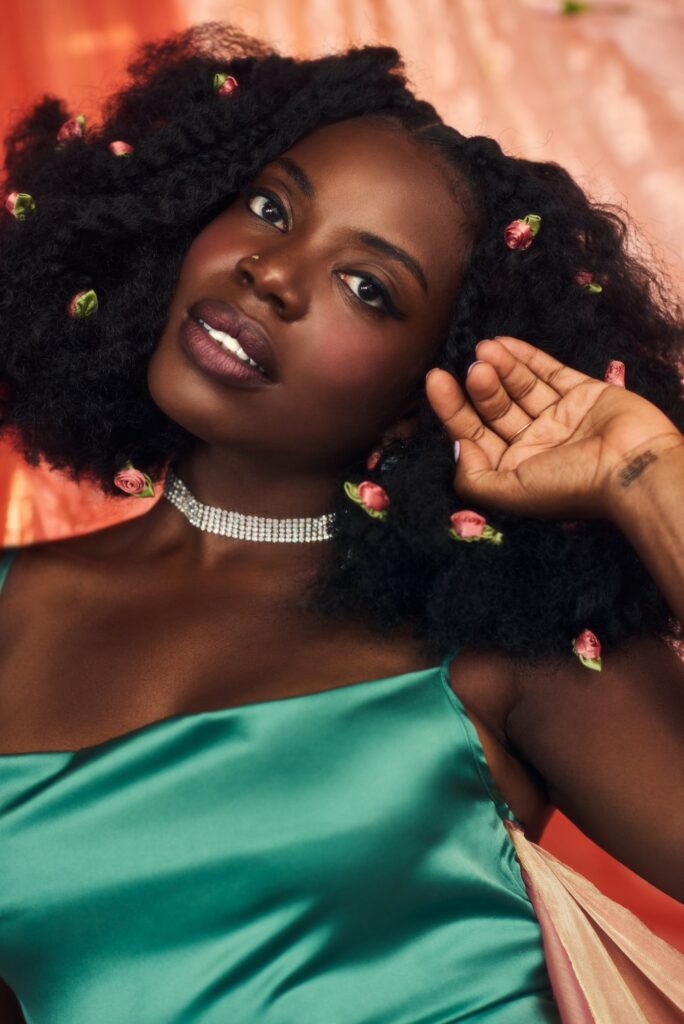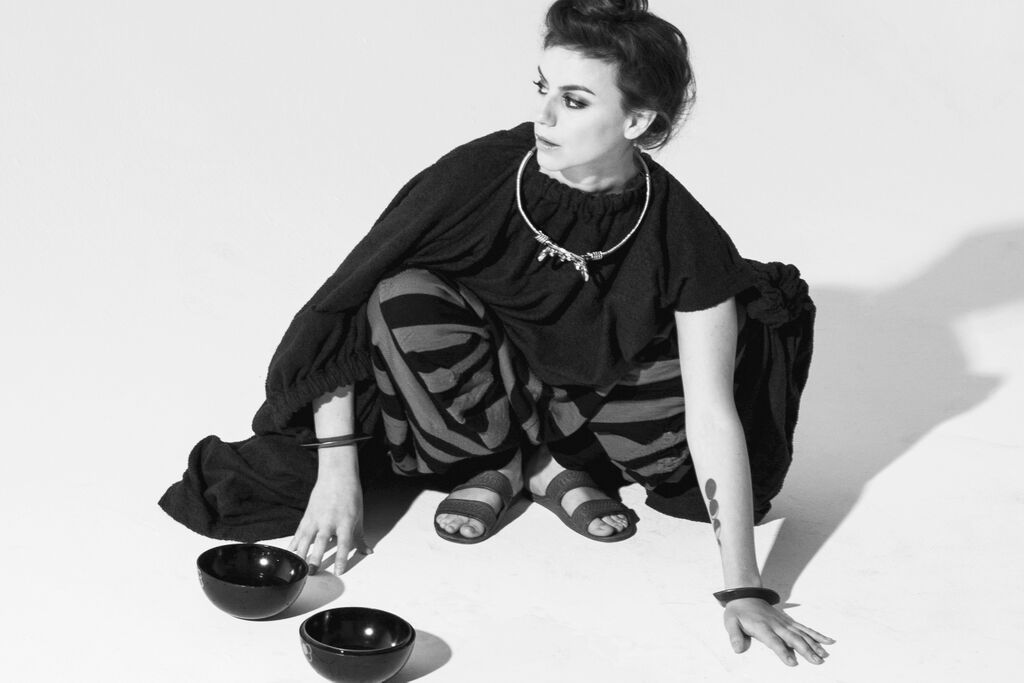

There’s an art to covering a classic song – and Melanie Charles has perfected it. Approached by Verve Records to remix songs from the label’s back catalogue, Charles brought a lifelong reverence of jazz to the project while also putting her unique stamp on each track, sometimes mashing her vocals and new beats with original recordings of Dinah Washington, Sarah Vaughan, Ella Fitzgerald, and others who paved the way for her own career. Its point-blank title, Y’all Don’t (Really) Care About Black Women, is a reminder to show real support and solidarity with the performers, rather than just consume or appreciate their artistic contributions.
Far from simply showcasing the fury and the frustration of Black women in a world that has denied them a voice and so much else, the collection also relishes their joys and accomplishments. While Charles had no interest in sugar-coating her message, she didn’t want listeners to feel alienated by songs now more than fifty years old. But it is to her immense credit that none of the songs she has selected from the Verve catalogue sound dated. Instead, the album invites celebration and movement.
“When I was arranging these songs, there were certain things I wanted to happen: I wanted people to dance, I wanted people to twerk to these songs. I wanted people who enjoyed the originals… to appreciate the reimaginings, while also making space to welcome in a new audience,” explains Charles. “I also didn’t want it to sound too pristine. I wanted to put some of that cassette tape ‘dirt’ from [2017 debut] The Girl with the Green Shoes. So, that’s how come Y’all Don’t (Really) Care About Black Women sounds like it does. The goal was to dance, to connect, to have that soulful grit.”
Born and raised in Brooklyn by her Haitian mother, Melanie Jean Baptiste Charles grew up steeped in the work of classic jazz performers, going on to study flute and vocals at the famed LaGuardia High School for the Performing Arts, and eventually enrolled at the School of Jazz and Contemporary Music at The New School. In 2016, she founded “Make Jazz Trill Again” in an effort to place jazz in a context that would feel more relevant to today’s youth – a mission that certainly lives on with her reimagined version of Betty Carter’s “Jazz (Ain’t Nothing But Soul).”
Anyone familiar with The Girl with the Green Shoes (which attracted the attention and acclaim of The New York Times and The Village Voice) knows Charles’ prowess as a musical creator. It is not just her voice, but her presence that compels attention. The album was recorded live to tape at Loud Door Recordings in Oakland, and produced by Charles’ nom de plume, D’flower. There’s a spaciousness and deep, luscious atmosphere that sounds as if she’s recorded in a church. In her lovely, undulating voice, surely she must be forging direct lines to heaven.
“The Girl with the Green Shoes is a snapshot of a time in my life when I was transitioning from the college jazz conservatory sort of way… into more of a beat scene, the beat world,” she explains. “I was never into computer. I’m definitely an analog girl to the core, so I pieced the project all on my [Roland] SP [202].” It was released via cassette tape label Hot Record Societe, helmed by Charles’ friend Mejiwahn, who provided the beat for album standout “Be On My Side.”
“Mejiwahn – his real name is Jamie – had a beautiful tape recording setup so we were able to record the music, perform it just one time down, no punches, no edits,” Charles remembers. “I just wanted to capture a natural, organic sound. I feel that the cassette tape mixes the music for you, it warms it up, it provides this comforting feeling when you listen to music recorded on tape.”
The fuzzy static of dust on tape gives that nostalgic, vinyl-style crackle to Y’all Don’t (Really) Care About Black Women, too. The format, and choice of songs, was entirely up to Charles, and her intuition guided her, since Verve had given her space and trust to narrow down the tracklist.
“Verve weren’t very hands-on about it; they let me really do my own thing. When it came to choosing songs, they had faith in me,” says Charles. “I started pulling the songs together before the pandemic happened. I went to the headquarters and I was able to go through the CDs and vinyls, listen to some songs, and share with them the ones that really stood out to me or talk to them about songs that I always loved and always wanted to sing and check in to see if they were also available to flip.”
Charles’ mission was clear to her, and she has, movingly and memorably, accomplished it with Y’all Don’t (Really) Care About Black Women. “My mission was to honor the original pieces… I listen to these songs remembering when I was at high school or college listening to these songs. I wanted to capture that feeling, but I also wanted to create a different type of groove and create an experience of something that you know or is familiar in a different way,” she explains. “The label supported that and really encouraged me to create sounds that were true to me.”
Her wonderful “Woman Of The Ghetto (Reimagined)” is a ballsy, rich, bluesy soul affair that partners Charles’ burnished, bourbon-rich voice with Marlena Shaw’s 1969 plea to men of the law and government. “How do you raise your kids in a ghetto?/Feed one child and starve another/Tell me, tell me, legislator/How do you make your bread in the ghetto?/Baked from the souls of the dead in the ghetto.” Charles and Shaw were both born in New York; both raised on their elder’s jazz records; both outspoken, proud Black women. This song, sculpted by Charles’ into smooth R&B poetry, sounds both classic and entirely fresh. The challenges, despite decades passing, are the same.
“I definitely feel like I face challenges in the music industry that are related to being a Black woman, specifically a dark-skinned Black woman, specifically a curvy Black woman,” says Charles. “How do I deal with it? By making sure that I am undeniably good at what I do. This is what I strive for. I oftentimes fall short of that goal, but if that’s the one thing I can fully control, that’s the one thing that I’ll focus on.”
Follow Melanie Charles on Instagram and Facebook for ongoing updates.




